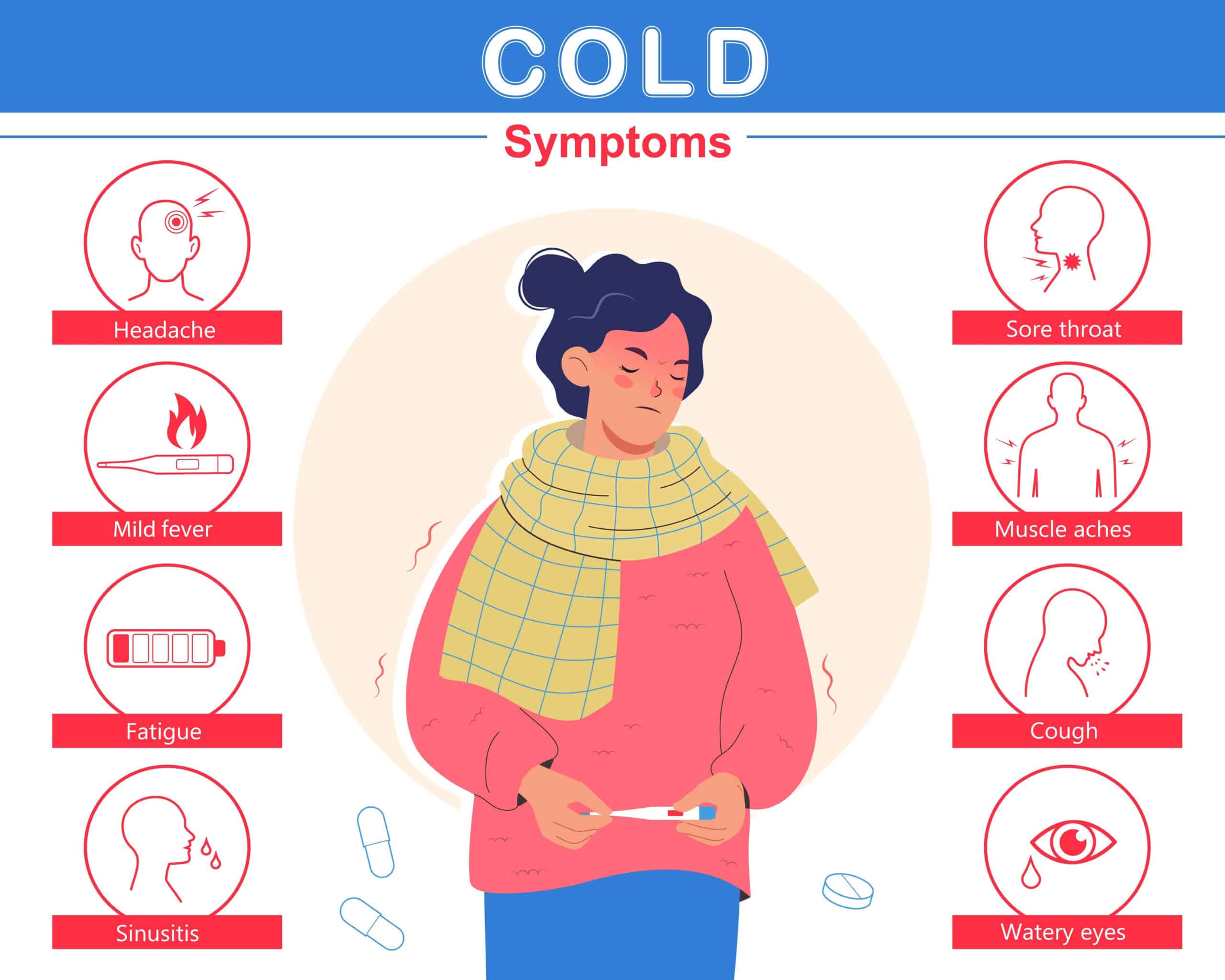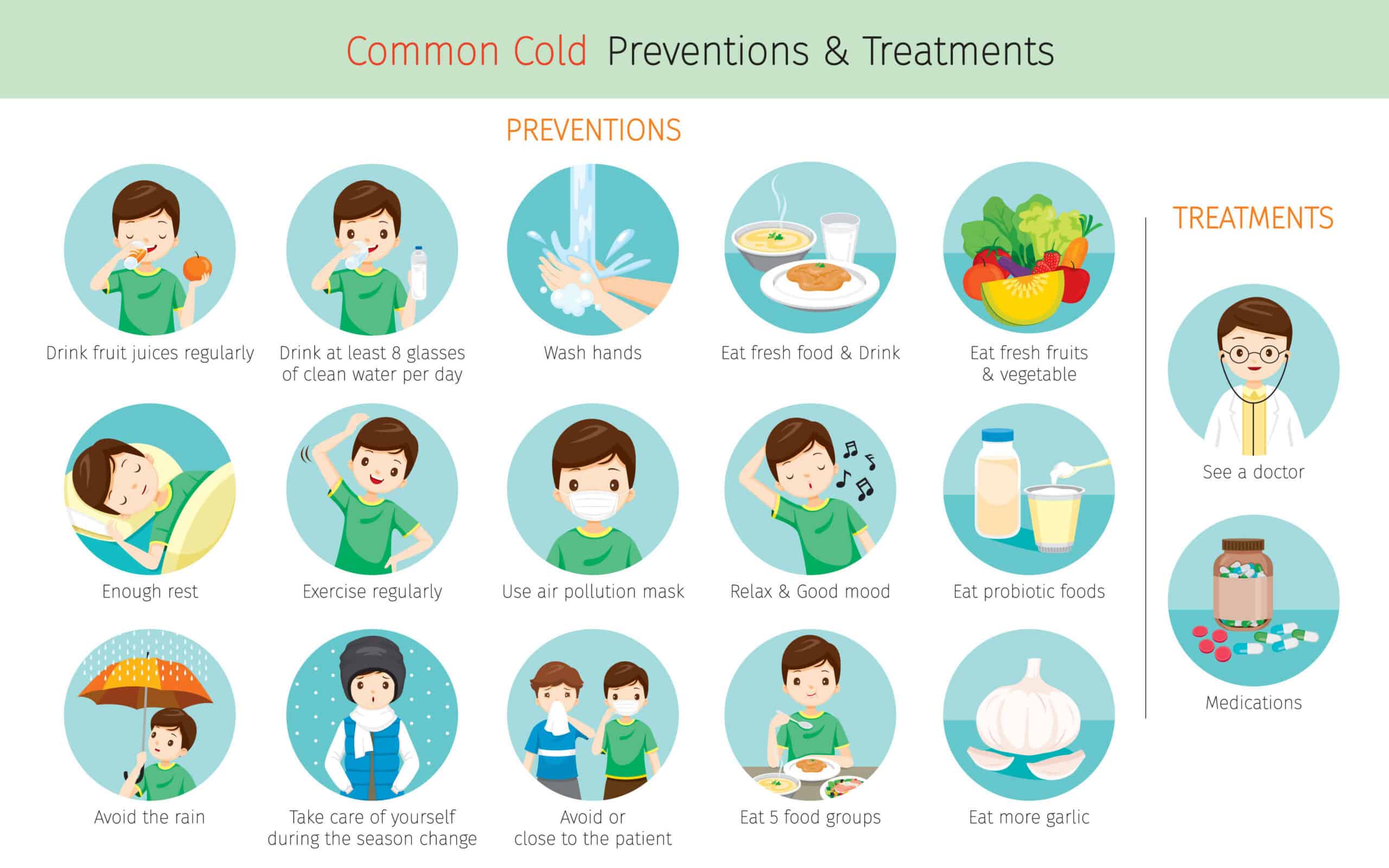Home » What We Treat » Illnesses » Cold
Cold
Fast and Affordable Urgent Care for Colds
Dealing with a cold can be inconvenient and uncomfortable. NextCare Urgent Care is here to provide fast and effective treatment to help you recover quickly. Whether it’s a persistent cough, fever, or nasal congestion, we ensure high-quality care without the long waits of traditional healthcare settings.
Understanding the Common Cold
The common cold is a viral respiratory infection causing symptoms like a runny nose, sore throat, cough, and congestion. While generally mild, it can lead to discomfort and disruption of daily activities.
Symptoms of the Common Cold
Recognizing the symptoms early can help in managing the cold effectively:
- ⊕ Runny or Stuffy Nose: A clear, watery nasal discharge that may become thicker and cloudier.
- ⊕ Cough: Often develops a few days into the cold.
- ⊕ Sore Throat: Usually mild and can be accompanied by sneezing and hoarseness.
- ⊕ Fever: Rare in adults but slightly more common in children.

Urgent Care Treatment Options
NextCare offers a variety of treatments to manage cold symptoms effectively:
- ⊕ Medication: Over-the-counter pain relievers and decongestants to relieve pain and congestion.
- ⊕ Professional Care: Access to healthcare professionals who can provide guidance and advanced treatments if symptoms worsen or complications arise.
- ⊕ Preventive Advice: Tips on how to prevent the spread of the cold and manage symptoms at home.

Why Choose NextCare for Fungal Infection Treatment?
- ⊕ Experienced Medical Staff: Our healthcare providers are experienced in treating a wide range of respiratory symptoms and infections.
- ⊕ Comprehensive Care: We offer treatment for cold symptoms and related conditions, such as sore throats and nasal congestion.
- ⊕ Nationwide Clinic Locations: With clinics across numerous states, there’s likely a NextCare conveniently located near you.
- ⊕ Prompt Care: Skip the hassle of waiting on hold. Book your appointment online or simply walk in at your convenience.
- ⊕ We Take Most Insurance: We accept all major insurance plans to get you the care you need without breaking the bank.
When to Visit Urgent Care for a Cold
Here are some indications that it’s time to visit urgent care for a cold:
⊕ Persistent Symptoms: your cold symptoms persist beyond a week without improvement.
⊕ Severe Symptoms: Severe symptoms such as high fever, intense sinus pain, or an inability to sleep due to symptoms.
⊕ Difficulty Breathing: If you experience shortness of breath or chest discomfort, it’s important to visit the ER or get medical care immediately.
⊕ Risk of Complications: Individuals with weakened immune systems, the elderly, and those with chronic health conditions.
FAQs
Yes, you can visit urgent care for a cold, especially if you experience severe symptoms that do not improve with home treatment, such as high fever, significant pain, or difficulty breathing. Urgent care can provide medical advice, prescriptions if necessary, and peace of mind.
Yes, a common cold can cause dry mouth, particularly because nasal congestion forces you to breathe through your mouth more often, which can dry out oral tissues. Staying hydrated and using a humidifier can help alleviate this symptom.
It often depends on the individual’s health and the severity of symptoms. Letting a cold run its course is usually safe if symptoms are mild. However, taking over-the-counter medications can help manage symptoms like fever, congestion, and pain, making you more comfortable while your body fights the virus.
While there’s no cure for the common cold, you can help your body recover faster by resting, staying hydrated, and maintaining good nutrition. Over-the-counter cold remedies can relieve symptoms. For severe or lingering symptoms, consulting a healthcare provider may be advisable to rule out other causes.
Yes, it’s possible to get a cold in any season, including spring. Cold viruses are present year-round, and changes in weather or immune system fluctuations can make individuals more susceptible to catching a cold.
Preventing a cold involves maintaining good hygiene, such as washing hands frequently and avoiding close contact with people who are sick. Strengthening your immune system through a balanced diet, regular exercise, and sufficient sleep is also beneficial.
Understanding the contagious period of a cold can help prevent its spread. A cold is typically contagious from a few days before symptoms start until all symptoms have gone. It’s most contagious during the first 2 to 3 days.
Identifying a cold early can help you manage it more effectively from the start. Early signs of a cold might include sore throat, mild fatigue, sneezing, and a feeling of being unwell.
Antibiotics do not work against viruses, and since colds are caused by viruses, they are ineffective and inappropriate for treating cold symptoms. It’s important to use antibiotics only for bacterial infections as prescribed by a healthcare provider.
In some cases, especially among the elderly, very young, or those with compromised immune systems, a common cold can lead to more serious respiratory illnesses like pneumonia. It’s important to monitor symptoms and seek medical attention if symptoms significantly worsen.